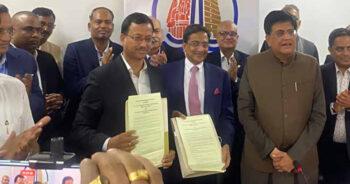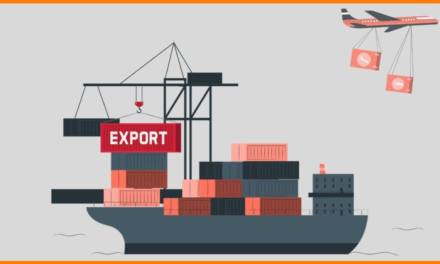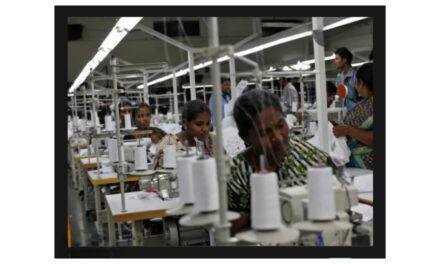 The industry-led approach in branding and tracing cotton in India is in line with the practice being adopted by major cotton brands like US PIMA and Egyptian Giza.
The industry-led approach in branding and tracing cotton in India is in line with the practice being adopted by major cotton brands like US PIMA and Egyptian Giza.
For example, the trademark Giza Cotton is owned by the Egyptian Ministry of Industry & Foreign Trade and the Alexandria Cotton Exporters’ Association but is solely managed by Cotton Egypt Association (CEA). Similarly, the Kasturi brand owned by the Ministry of Textiles will be solely managed by Texprocil on behalf of the Trade and Industry.
The MOU was signed at the recent two-day Textile Conclave in Varanasi recently, coinciding with the event Kashi Tamil Samagam.
Speaking on the milestone, the Chairman of Texprocil, Sunil Patwari, thanked Piyush Goyal, the Union Minister for Textiles, Commerce and Industry, Consumer Affairs, Food and Public Distribution, for entrusting Texprocil with the responsibility of being the implementing agency for branding the premium Indian cotton Kasturi.
Patwari said that despite a very strong presence in the world market for cotton, India has been unable to brand its cotton varieties so far unlike USA – PIMA Cotton and Egypt – GIZA Cotton.
The Chairman mentioned that the Union Minister has cast “an enormous responsibility” on the trade and industry to self-regulate and take responsibility for branding, tracing and certifying Indian-grown cotton Kasturi and that Texprocil was happy to assume the responsibility.
Patwari also stated that the scope of work involves three main pillars which are Brand Promotion, Traceability and Certification.
A unique brand identity for Kasturi Indian cotton will be created by highlighting its specifications-based benefits, thereby enhancing export opportunities while complete traceability details will be provided to the ‘end user’ through blockchain-based software. Registration & Transaction Certificates will also be provided by using QR Code-based technology to validate Kasturi Cotton in the entire supply chain, he added.
“In times to come as the Indian cotton Kasturi gains acceptance and prominence in global markets it is not only expected to enhance export opportunities and provide a competitive edge to Indian cotton textile products but will ensure higher earnings for farmers,” Patwari said.





















